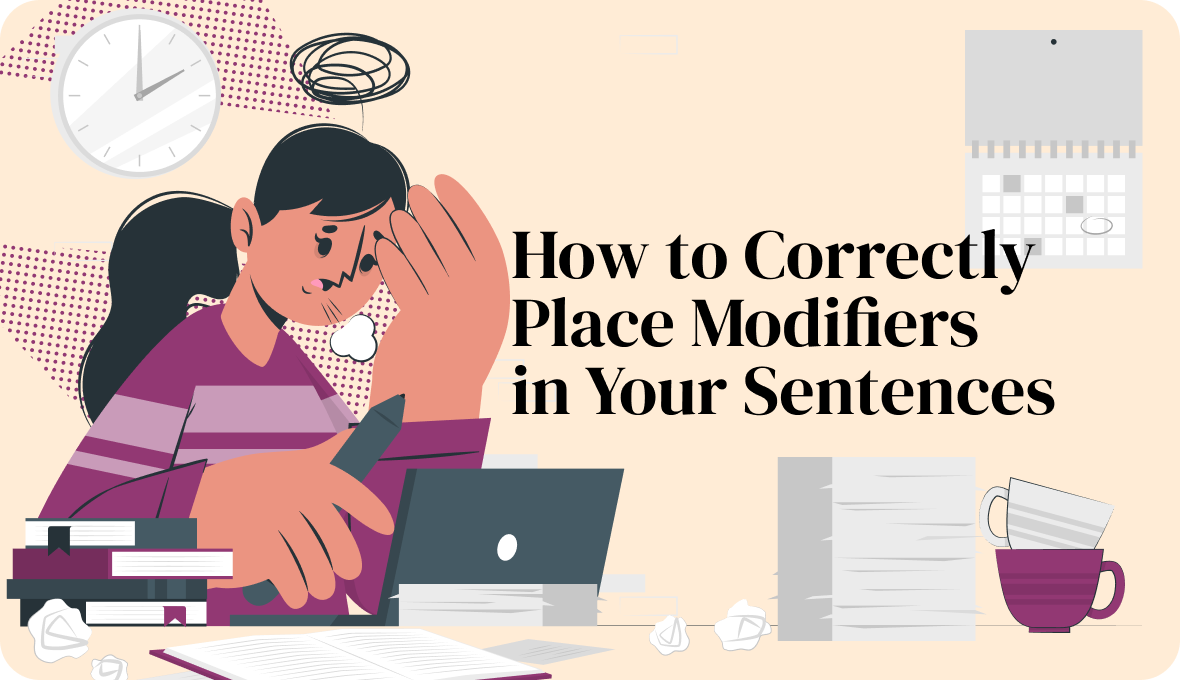Anyone who has ever been a student, be it in high school or college, should’ve probably faced an expository essay at least once. It is one of the most common types of writing assignments faced by students. Just like other academic papers, an expository essay can be rather hard to write. But, despite this, it is one of the best types of assignments in terms of freedom and creativity.
Working on this type of essay can be easy and even fun, but only if you know what you are doing. And we are here to help you with this. In this article, you will find a comprehensive expository writing definition, a step-by-step writing guide, topic examples, and other handy tips that will help you get the highest grade.
What Is an Expository Essay?
To define the meaning and purpose, it is vital to understand what the word “expose” means. According to the general definition, to expose stands for laying something bare, uncovering, or revealing something. Respectively, an expository essay has the sole purpose of clarifying, explicating, or explaining something that was previously unknown in such a way as to make it clear and understandable for a reader.
This type of essay can offer readers an argumentation, evaluation, clarification, or investigation of some idea or concept. This type of writing is very common in schools and colleges. Students of all academic levels can face this assignment, which is why it is vital to know how to write an expository essay.
Types of Expository Essays
Now that you know the expository writing definition, one more thing you need to know is that there are multiple types of such essays. Although all types share some common features, each type of expository essay has certain peculiarities and requires a different approach.
Description/Definition Essay
This type is the most creative one. As you can understand from its name, this paper is used to describe or define something - it can be pretty much anything, including a person, event, place, object, etc.
The key thing to keep in mind is that your goal is not just to describe the chosen object but to do it in a way that engages and fascinates the readers. That’s why, in your description, you need to try to engage all five senses of your reader - sight, smell, touch, sound, and taste. Also, this type of essay encourages you to use vivid adjectives to create the right atmosphere in your story.
Cause and Effect Essay
Another type is cause and effect.
The core goal of such work is to identify the cause and effect connection between some events and explain it to the readers.
As the basis for your cause-and-effect essay, you can pick pretty much anything, for example, a historical event, a global issue like climate change, a personal issue like drug addiction or sleep deprivation, etc.
Once you have picked the topic, you need to analyze its causes and effects. Also, you need to support your ideas with real facts and examples.
Problem and Solution Essay
The next type of essay is a bit similar to the cause and effect essay. The only difference is that it analyzes a problem and, instead of listing the effects, suggests possible solutions.
The main goal of this paper is to study an existing problem in detail.
You need to look at different sides and aspects of an issue to identify probable solutions. Also, apart from suggesting solutions, you need to persuade the readers that your suggestions are justified and effective. This form is one of the hardest ones to handle. It requires thorough research and critical analysis.
Process Essay
A process essay is also called a how-to essay.
It is a paper that strives to break down a specific process, explaining each step in detail.
It can be anything: from saving money to cooking lasagna.
To handle this task, you need to pick a process you want to discuss and break it down into smaller steps. Then, you have to write a step-by-step guide on how to get from the point “A” to the result.
To give you an example here, you can write a process essay on “How to write a research paper” and divide this process into the following steps:
- Choose a topic;
- Conduct research;
- Make an outline;
- Define your thesis statement;
- Write your paper;
- Proofread and edit.
Compare and Contrast Essay
The last type you can face at school or college is a compare and contrast essay.
The main purpose of this essay is taking two objects and comparing them.
But, at the same time, you need to show a clear contrast between the objects (i.e. show how one is worse or better than another). To do this right, a student is required to define the subjects in question, show what similar features they have, and emphasize differences.
The subjects for comparison can vary. For example, you can compare and contrast two books or movies, two genres of music, two different types of sports, two colleges, etc.
Your teacher has given you an assignment to write a narrative essay, but you don't know how to do it? Our writers have created a great guide that is sure to help you.
Just don't feel like it? Let us handle your task and go on with your life!

Structure of Expository Essays
Just like all other essays, it is a rather short piece of writing. Typically, it should be between 500 to 800 words in length. Given its small word count, such essays look best with a standard five-paragraph structure.
Here is the most effective way to structure your paper:
- Introduction
- Body paragraph 1
- Body paragraph 2
- Body paragraph 3
- Conclusion
Expository Essay Writing in 5 Simple Steps
Purpose
If you were assigned to write an expository essay, the first thing you should do is to identify your objectives. This type of essay is much different from other types of essays. Unlike other papers, it strives to offer a perspective on some subject rather than argue about something.
Also, you should remember that there are different types of expository essays. Depending on the type you were assigned to do, you may take a different approach to the writing process and pursue a different purpose. So, be sure to clearly identify your objective and keep it in mind throughout the entire process.
Expository Essay Outline
The next step is outlining your future essay. In fact, many students tend to skip this step and jump straight to writing. Needless to say that the latter can do more harm than good.
A detailed outline is your best helper when it comes to essay writing. It helps you organize your ideas, define the correct structure for your paper, and ensure a logical and smooth flow of your essay. Also, having an outline can significantly reduce the time you spend on writing the paper itself. It is your step-by-step instruction on what to write, where to start, and what information to provide.
An outline should consist of all parts that will be inherent in your essay. Here is a sample of a good expository essay outline:
- Introduction
- A hook to grab the reader’s attention;
- Background information and context for the topic;
- Thesis statement.
- Main Body Paragraphs (include at least 3 paragraphs and follow the same outline for each body paragraph)
- Topic sentence;
- Discussion of the main idea;
- Supporting arguments (facts, statistics, examples from personal experience, literature, or history, etc.)
- Transition.
- Conclusion
- Summarize your essay;
- Restate your thesis statement;
- Add a clincher (e.g. a profound statement or rhetorical question to give the readers some food for thought).
Please note that the structure of your outline may differ depending on the type of essay you were assigned with. Thus, it is vital to keep in mind the peculiarities of the specific type.
How to Start an Expository Essay
As you already know, every essay consists of an introduction, several body paragraphs, and a conclusion. When you finally get to writing your paper, you will most likely begin with an introduction, so let’s define how to make it right.
If you are wondering how to start your essay, the best way to do it is to use a hook. The hook is a trick used to drive the reader’s attention and encourage them to continue reading. It can be a shocking fact, statistics, rhetorical question, quote, or anything else that grabs attention and is relevant to your topic.
After the hook, you should provide some background information to make the topic clear to your readers. It is enough to use 2-3 sentences to provide the context for the topic. After this, make a clear thesis statement that demonstrates your stance and opinion on the topic.
Body Paragraphs
After your killer introduction is ready, you can move on to writing your body paragraphs. As we said earlier, the best approach is to stick to the five-paragraph essay structure, which means you should have three body paragraphs.
It is important that you only present one idea in each body paragraph and focus on analyzing it. Each of your body paragraphs should begin with a topic sentence that represents the main idea. It should be followed by the discussion of that idea and supporting arguments.
Also, at the end of each paragraph, you should make a transition to the next one. This will help you ensure a logical and smooth flow of the information within your text.
Conclusion
There is one thing you should bear in mind - although what you write in the main body of your text matters, it is your introduction and conclusion that make the biggest impression on the reader. Thus, these two sections have to be flawless.
To make a good introduction, you should provide a summary of your key points followed by a restated thesis statement. To make your essay look complete, it is also a good idea to include some kind of a clincher that gives readers food for thought.
Top 50 Expository Essay Topics
A big part of the success of your essay is pre-determined by the topic you choose. Choosing the right topic is just as important as writing a high-quality text, which is why we encourage you to choose expository essay topics thoughtfully.
To find inspiration, check out our list of great expository essay ideas for different essay types:
Description/Definition Essay
- Describe the strangest person you’ve ever met
- Describe your favorite city
- Describe the best place you’ve ever visited
- Describe your role model
- Describe your favorite piece of art
- Describe the first time you went hiking
- Describe your happiest memory
- Describe your lucky charm
- Describe your favorite book
- Describe your dream job
Cause and Effect Essay
- The causes and effects of drug abuse
- Domestic violence
- The global warming
- The causes of divorces
- Drunk driving
- Air pollution
- Stress and physical health
- The impact of social media on our lives
- The causes and effects of the WWII
- The causes and effects of music on our mental health
Problem and Solution Essay
- Possible solutions for cyberbullying
- How to fight global poverty?
- Possible ways of helping homeless people
- How to prevent steroid use?
- How can we encourage more students to participate in sports?
- Possible solutions for the problem of texting while driving
- How to prevent domestic violence?
- How to stop the extinction of endangered species?
- Ways to stop the economic crisis
- Possible solutions to end the global pandemic
Process Essay
- How to become a high-achieving student?
- How to improve your writing skills?
- How to start your own business while still being a student?
- How to stop procrastinating?
- How to build healthy habits in college?
- How to combine a job with studying?
- How to travel on a student’s budget?
- How to learn to play the piano?
- How to write any type of academic paper with ease?
- How to get your dream job?
Compare and Contrast Essay
- Is living in a house better than living in an apartment?
- Summer vs. Winter
- Are books better than movies?
- Full freedom or parental control
- Being a night owl vs. an early bird
- Instagram vs. Facebook
- Big cities or small towns
- Is it better to be a loner or the heart of the company?
- Private schools vs. public schools
- Unemployed students vs. students who work
Expository Essay Tips
So, we’ve already discussed the essence of an expository essay, its structure, basic writing steps, and possible topics that can help you create a top-notch paper. You no longer need to hire college essay writers and can instead rely on your own skills and knowledge. What else do you need to know?
In order to create an essay that will impress your professor and bring you a high grade, you should ensure that your work is flawless. Here are some of the handiest tips to help you with that:
Dos
- Pay attention to your word count, keep the essay clear, concise, and straight to the point.
- Write from the third-person perspective (but keep in mind that writing in the first-person can also be acceptable in some cases).
- Choose a topic you are interested in.
- Make sure your thesis statement is clear and strong.
- Use a hook phrase to get readers engaged.
- Keep readers involved by engaging their senses and providing vivid details (where appropriate).
- Follow a standard five-paragraph format.
- Focus your attention on one idea in each body paragraph.
- Deliver your arguments in the right order.
- Make smooth transitions between your paragraphs.
- Cite all external sources you used to write the essay (unless your professor doesn’t require this).
- Ensure that your conclusion is concise, logical, and clear.
Don’ts
- Don’t hesitate to specify the specific requirements of your professor if something is unclear.
- Don’t forget about the purpose of your essay and make sure that it corresponds to the assigned essay type.
- Don’t forget to outline your essay before you start writing.
- Don’t be afraid to express yourself.
- Don’t hesitate to check out some essay examples to know what expository essay format to follow and how the final work should look in general.
- Don’t submit your essay without proofreading and editing it first.
The Bottom Line
Hopefully, after reading this article you know what is an expository essay and how to write it. In this guide, we’ve looked at this type of writing in detail and shared some of the most effective tips for handling it.
But what if even after reading the guide you are still not sure how to write an expository essay? If that’s the case, you’ve come to the right place! At PaperWriter, students of all ages and academic levels can get professional assistance from pro paper writer with years of experience and college degrees.
At our service, you can order any type of paper on any subject and receive a top-notch paper worth the highest evaluation! We offer you a smart solution for your academic issues and a way to save time, without giving up on your performance. For example, you also may ask a qualified research paper writer to help you with your assignment.
Sounds like a good deal, right? Then, what are you waiting for? Place an order for your essay now and impress your professor with a flawless paper!



.webp)
.png)
.png)
.png)
.png)

.png)
.png)
